It’s 10 years of the ongoing war in Afghanistan. As the US-led NATO forces prepare the ground to throw in the towel, the situation in the region remains as critical as ever. And, it’s unlikely to change until the Pakistan problem is sorted out
Afghanistan, it is said, lies at the crossroads of the world. It is a place where the world, or should we say history, takes a turn. The wisdom underscoring this pithy observation is once again staring the world in its face. But expediency is forcing the foreign players involved in the Afghan Buzkashi to close their eyes to the horrendous repercussions of either abandoning or even handing Afghanistan to the Taliban-led consortium of Jihad International.
The NATO-led International Security Assistance Force (ISAF) in Afghanistan is preparing the ground to throw in the towel. A curious cocktail of misplaced and mindless liberalism, punctured imperial hubris, grave strategic miscalculations and mistakes, and spiralling economic and political costs have led to a drastic lowering of objectives set by the US-led international effort in Afghanistan. From a time when the international forces had taken upon themselves to do whatever it took to reorder the Afghan society and polity and rid it of the malevolence of the radical, obscurantist and barbaric Taliban and their affiliates, to now when all that is being sought is that the Al Qaeda is not given sanctuary and Afghanistan doesn’t become a base for terrorism against the West, it has been quite a comedown.
Sure, with their economies in a tailspin and public support for the war in Afghanistan plummeting, it is quite natural for the Western countries, particularly the US, to try to cut their losses and expenses in the bottomless pit called Afghanistan and to devote their energies and divert their resources to take care of their homelands. But if they think that by abandoning Afghanistan or letting it descend into chaos, they will be able to ensure their own prosperity and security, they have got another thought coming.
One thing is certain: If the Islamists win in Afghanistan, it will serve as a shot in the arm for their global ambition (and God-ordained duty) to spread their virulence in every part of the world. Anyone who doubts this only needs to read the literature published by the Islamists. The choice before the West is, therefore, clear: They can either fight and win this war in Afghanistan (and of course, the root of the problem — Pakistan), or they can fight this war, with all that it will entail — car bombs, IEDs, suicide bombers, fidayeen attacks, and what have you — in the streets of their own countries.
The fate that awaits Pakistan in the event of a Taliban victory in Afghanistan is probably going to be even worse than death. Of course, when one says this, one presumes that Talibanisation is not something that enamours the Pakistanis. This is perhaps a fallacious presumption given both the mindset that pervades large sections of the Pakistani populace, and the fact that the real rulers of Pakistan — the military — view the Taliban and their assorted Islamist allies in Pakistan (some of which like the Sunni extremist Lashkar-e-Jhangvi and Sipah-e-Sahaba Pakistan are merrily massacring Shias without any let or hindrance) as their best bets to install a ‘friendly’ Government in Afghanistan.
While the rest of the world, and even some sensible Pakistanis, would label a Talibanised Pakistan as a ‘failed state’, most Pakistanis, including many in the Pakistan Army, would probably welcome such a dispensation as the pinnacle of political achievement and the fulfilment of their desire for an Islamic utopia. If at all the Pakistanis have a problem with the Taliban, it is not so much with the Taliban worldview (which many Pakistanis identify with) as with the Taliban terror tactics and the fact that some of the Taliban are not willing to follow the orders of the patron — the Pakistan Army.
Cut through the verbiage of Pakistani spin doctors who, even as they try to beguile the international public opinion by presenting a reasonable face (some of it genuine, most of it contrived), are at the same time playing upon the international community’s fears of a nuclear-armed, Talibanised Pakistan, and it is quite apparent that the Pakistani establishment has put all its eggs in the Taliban basket. Although the Pakistanis never stop reminding the world of the sacrifices they have made in the ‘war on terror’, there has never been any cogent answer to the mother of all questions: If Islamabad’s interests are served by keeping the Taliban option alive, then what sort of a war is Pakistan fighting against the Taliban? The answer really is plastered all over the place: The Pakistanis are not fighting against the Taliban and their affiliates who are targeting the ISAF and Afghan troops in Afghanistan from their bases and sanctuaries inside Pakistan; they are only fighting those Taliban who are targeting Pakistan.
The sort of double-game and double-speak that the Pakistanis indulge in has been best described by none other than the former Taliban ambassador to Islamabad, Mullah Abdul Salam Zaeef, who writes in his autobiography: “Pakistan... is so famous for treachery that it is said they can get milk from a bull. They have two tongues in one mouth, and two faces on one head so they can speak everybody’s language; they use everybody, deceive everybody.”
Sample this: Pakistan’s Army chief Gen Ashfaq Kayani was quoted last year as saying: “We cannot wish for Afghanistan anything that we don’t wish for Pakistan (read Taliban)... We want a strategic depth in Afghanistan but do not want to control it.” Last week, however, he was reported as telling the All-Party Conference in Islamabad that the Haqqani network has never created problems for Pakistan and with the Americans planning to leave Afghanistan there was absolutely no reason for Pakistan to change its friends into foes. This then begs the question from the Americans that if indeed the ‘bad guys’ function as ‘friends’, if not ‘a veritable arm of the ISI’, then aren’t the Americans fighting in the wrong country (Afghanistan) and also allying with and relying on the wrong country (Pakistan)?
Regardless of whether it is muddled strategising, treachery, foolhardiness or even that typically Punjabi proclivity for self-destructiveness born out of hostility and enmity (pull down your neighbour’s house even if the walls of your own house collapse) — it is probably all of these — the Pakistani military establishment has succeeded in one thing at least: Getting sucked into the Afghan vortex. In the process, it has bankrupted its economy, impoverished its people, ruined the international image of its country, torn apart the social fabric of the society, and got saddled with a dysfunctional political system. But these hardly matter to the generals. For the tin hats in Pakistan’s armed forces, this is collateral damage — a cost that must be borne in pursuit of their grandiose strategic objectives. The irony, however, is that instead of Afghanistan providing Pakistan with strategic depth, it is Pakistan that is now providing the Taliban with ‘strategic depth’.
For public consumption at least, the whole ‘strategic depth’ doctrine has been given a more benign interpretation. It is officially no longer about reducing Afghanistan into a client state, much less treating it like the fifth province of Pakistan, but only about having a ‘friendly’ and ‘not hostile’ Government in Afghanistan. But the instrument being used by Pakistan for achieving its strategic objectives — religious extremism and radicalism — promises to turn the ‘strategic depth’ into a ‘strategic black hole’ for Pakistan. Even though many in the Pakistani establishment are extremely wary of getting dragged into the Afghan quagmire, this is now inevitable.
Driving Pakistan’s policy is its paranoia of real and imagined Indian influence in Afghanistan. The problem is that its maniacal obsession to counter Delhi in what it sees as its own backyard so that it is not caught in a nutcracker situation by India is actually getting Pakistan caught in the Afghan snare.
In other words, Islamabad’s hostility towards Delhi is directly proportional to its getting sucked in deeper and deeper into the ‘graveyard of empires’. This, paradoxically, not only gives India a leverage and control over Pakistan’s Afghan policy but also pretty much puts it in the driving seat in terms of deciding how badly it wants Pakistan to get burnt in Afghanistan.
Until a few weeks back, India was content to use its enormous soft power to earn goodwill of the Afghan people. Compared to the malign influence of Pakistan which could only give death and destruction to the Afghans, India exercised a benign influence — building roads, schools, hospitals, power projects, dams, helping in capacity building and institution building. Mindful of the limitations imposed by geography, India preferred to ride piggy-back on the Americans. As a result, instead of formulating its own strategy, Delhi was toeing the line set for it in Washington. But with the Americans all set to leave, these political and diplomatic constraints are slowly but surely being cast aside. India seems to have understood that soft power alone is not enough, even less so in a setting in which the future course of events are being decided by hard power. The first significant step in the direction of exercising some hard power options was taken on October 4 with the signing of the Afghanistan-India Strategic Partnership Agreement, under which Delhi has agreed “to assist, as mutually determined, in the training, equipping and capacity building programmes for Afghan National Security Forces”.
No doubt, this agreement will serve as a red rag for the Pakistanis who are bound to go all ballistic over India’s involvement with the building up of the Afghan security forces. The Pakistanis had themselves been trying hard to get such a role to play. But the Afghans, despite paying lip service to using Pakistani training facilities, were extremely reluctant to go down this path. India, on the other hand, had been showing reluctance (partly under US pressure and partly on account of the pusillanimity of the Government which wanted to assure Pakistan of its benign intentions in Afghanistan) to taking on the training and equipping of the Afghan security forces and had avoided acting on Afghan requests to play a more active role in the military field. That India has now agreed to bare its fangs is a sign that it will henceforth adopt a more independent policy in Afghanistan.
For this thanks are due to the Pakistanis, who in anticipation of controlling the ‘endgame’, suddenly and perhaps prematurely shifted the gears of terrorism in Afghanistan to a new high. Not only were high-profile assassinations carried out — President Hamid Karzai’s brother, the mayor of Kandahar, and most recently former President Burhanuddin Rabbani — there were also major attacks on American targets (the US embassy in Kabul and the US military base in Wardak). The idea behind these attacks was to force the pace of the so-called peace process. Apart from the Pakistanis, the muddled and often dubious as well as duplicitous US policy in Afghanistan, including efforts to strike deals with notorious terror groups like the Quetta Shura and the Haqqani network, has also forced a rethink on India which doesn’t want to be left in the lurch when the Americans leave. But it will be neither enough nor practical for Delhi to act alone. It will have to use diplomacy to forge a wider regional alliance with countries like Iran, Russia and Central Asian states, all of which have crucial stakes in Afghanistan, to counter the baleful influence of Pakistan and its Islamist proxies in Afghanistan.
For their part, the Afghanistan Government, too, seems to have lost patience and trust (if ever there was any) with Pakistan. President Karzai’s new approach of stopping all negotiations with the Taliban and to now talk only with Pakistan is a clever way of saying that it makes more sense to talk to the principals rather than the proxies. By putting the onus on the Pakistanis, what he is effectively doing is asking the Pakistanis to either demonstrate their control over their proxies and if they are unable to do so then asking them what they are bringing to the table that they should be given a central role in the ‘endgame’. If the Pakistanis bite the bait, they will prove the charge against them that they are running the Taliban. There is also an outside chance of a wedge being driven between Pakistan and the Taliban by making the former a party in the talks. If, however, Islamabad doesn’t bite, then the odds are that it will respond by unleashing even more murder and mayhem in Afghanistan. This in turn will harden the positions inside Afghanistan among the anti-Taliban forces and also put greater pressure on the international community to address the root of the Afghan crisis — Pakistan.
In the final analysis, until the Pakistan problem is sorted out, there will never be any peace in Afghanistan. More importantly, not taking effective action — diplomatic, economic, and even military — to change Islamabad’s behaviour is not going to halt its march towards Talibanisation. Quite to the contrary, the more the world tolerates Pakistan’s dalliance, even alliance, with the Taliban, the more it ensures that Islamabad will end up being Talibanised. Afghanistan is, in this sense, only a sideshow. The real nightmare will begin when Pakistan falls under the sway of the Taliban. If anything, it is not what the Pakistanis are doing to the Afghans that should worry the world, but what the Afghans will do to the Pakistanis that should be the focus of attention.
-------------------------------------------------------
Published in The Pioneer 8th October - 2011

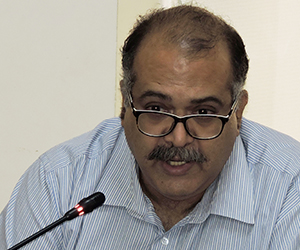


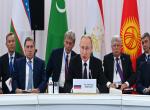
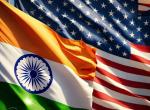
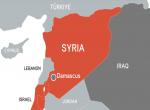
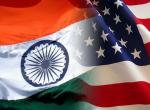

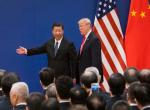
Post new comment